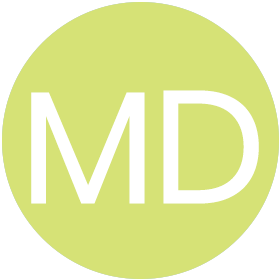
4 Signs You're Ready To Stop Renting And Buy A Home
Renting an apartment or home gives people many options and the flexibility to move. But many renters have homeownership as a future goal so they have a place of their own and build financial security.
Here are a few signs that show you may be ready to make the leap to buy a home.
Rent Payments Keep Going Up
Rents are going up in some parts of the country, making it harder for renters to anticipate monthly housing costs and put money toward other financial goals.
When paying a landlord every month is no longer appealing and you want to build equity for the future, it’s time to figure out what loan you qualify for.
The balance may be tipping towards buying if you’ve had your rent increase significantly and you feel trapped. With today’s escalating rental rates and low (mortgage) interest rates, chances are your monthly outlay could be less on a purchase than on a rental.
Renters are typically ready to buy a home once they have achieved financial stability, want to customize or control their homes, reap the tax advantages or simply want the pride of owning their own place. If one or more of those is tugging at your heart, at least look into the possibility of owning rather than renting.

Your Credit Score Is In Better Shape
One of the signs that a renter is ready to buy a home is a healthier credit score. Although borrowers can qualify for a mortgage with a credit score as low as 500 for some loans, they’ll pay higher down payments and mortgage rates. The higher your credit score, the lower interest rates you’ll receive. Plus, you’ll have access to more conventional loan programs with lower down payment requirements.
First, get a free copy of your credit report. Look for and address issues that might be hurting your score, such as late payments, high balances and debt collection activity. A mortgage advisor can work with you to identify what issues to tackle first to boost your score faster.
You Have Enough Money Set Aside For Owning A Home
The old 20 percent down payment requirement is an outdated myth. Some mortgages insured by the Federal Housing Administration, known as FHA loans, require just 3.5 percent down. Conventional loans backed by Fannie Mae and Freddie Mac require just 3 percent down and government loans guaranteed by the U.S. Department of Veterans Affairs and the U.S. Department of Agriculture require no down payment* at all.
Ready To Leave Renting Behind? Here’s What You Can Do Next
Before you start looking at potential homes, talk with a mortgage advisor and get pre-approved for a mortgage first. Getting pre-approved** helps you know how much house you can afford, what loan program is best for your situation and what price range to focus on so you don’t overextend your budget.
With proper planning, and teaming with a knowledgeable mortgage advisor, home ownership is within reach.
*Eligibility subject to program stipulations, qualifying factors, applicable income and debt-to-income (DTI) restrictions, and property limits. Fairway is not affiliated with any government agencies. These materials are not from HUD or FHA and were not approved by HUD or a government agency.
**Pre-approval is based on a preliminary review of credit information provided to Fairway Independent Mortgage Corporation which has not been reviewed by Underwriting. Final loan approval is subject to a full Underwriting review of support documentation including, but not limited to, applicants’ creditworthiness, assets, income information, and a satisfactory appraisal.
The information contained in the article has not been prepared by Fairway Independent Mortgage Corporation and is distributed for educational purposes only. The information is not guaranteed to be accurate and may not entirely represent the opinions of Fairway Independent Mortgage Corporation.
Written by: Ellen Chang
Want to learn more? Please schedule a call today!
Thinking of buying a home? Learn more about the home buying and mortgage process. Most importantly, get tips on how to avoid pitfalls and guarantee a smooth experience.

WHAT ARE CUSTOMERS ARE SAYING

PROMISE HOME LOANS
NMLS #: 2372318










